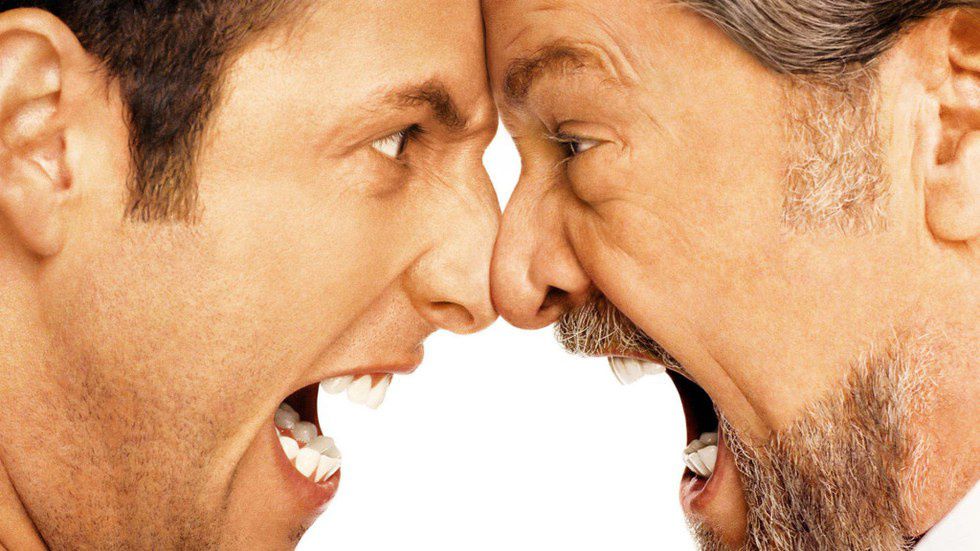Saving money can be a daunting task, especially being constantly bombarded with sales and promos cluttering your email and Wal-Mart open 24/7, promising to satisfy your late-night ice cream craving.
As a busy, independent college student, I often find myself scouring the aisles of the grocery store after a tiring afternoon at work and walking out of the store with bags full of groceries that, at the moment, seemed like something I couldn’t live without. By the time I've hauled my loot into my dorm, however, I often realize the amount of money I just wasted only to satisfy my own momentary food cravings is enough to feed a family.
This same feeling of loss occurs when I visit the local clothing outlet with the intent of merely checking out the clearance rack, but I find myself swiping $50-plus out of my debit card account. Thinking back to the times, these have occurred, I find one common denominator: the HALT theory. The acronym HALT, commonly used by recovering addicts to avoid a relapse, stands for Hungry, Angry, Lonely and Tired. You don't need to be a shopaholic to make use of the HALT theory when it comes to saving money.
1. (H)ungry

You’ve most likely heard the advice to never go to the grocery store when you’re hungry. It’s really a self-explanatory concept. If you’re hungry, you’ll want food. And your grumbly tummy will tell your brain that you need more food than you really do, thus leaving you with an unnecessarily high grocery bill and an array of foods that will likely go to waste when your grumbly tummy is satisfied after eating only a portion. In addition, hunger can cause overspending aside from groceries. Hunger, along with the other three emotions of HALT, is one of the mind-numbing emotions we experience. Hunger kicks self-control to the curb and lets gluttony take the shotgun seat.
The best advice concerning hungry shopping is "don’t." If you're contemplating a trip to the store when you know you’re hungry, find a quick snack that you already have on hand. If you can't avoid the store while you're hungry, be sure to have a specific shopping list made beforehand. This will keep you from spur of the moment buys that you'll likely regret once your hunger has been satisfied.
2. (A)ngry
It may just be me, but when I’m mad, I like to drive. There is my first mistake. Unless it’s a cruise down a secluded back road, angry driving can lead to quick road rage. I know what you’re thinking. "What does this have to do with spending money?" First, driving takes gas money. Second, once I’m out driving around, I tend to find the road doesn’t calm my mind so I resort to the next option: shopping. Angry shopping is shopping without self-control. Anger shortens your attention span and allows you to make rash decisions with a “don’t care” attitude. That item in your basket may cost more than you would usually pay for it, but on a bad day, who’s stopping you? To avoid angry spending, it's beneficial to invest in a calming hobby such as crafting, reading, adult coloring, etc. Make a top 20 calming songs list to play when you are having a rough day.
3. (L)onely
Loneliness is the most difficult of these four to subdue, in my opinion. Loneliness is not the same thing as being alone, but rather a part of not finding a sense of belonging in your environment. Loneliness spurs on boredom. Boredom sends a person’s mind wandering, and in the case of overspending, boredom can wreak havoc on a savings account. Some people may seek out belonging through a new wardrobe, new hair styles or buying everything bigger and better and best. The biggest problem is things won't take away the loneliness. If your friends base their loyalty to you on your monetary value, those friends won't stick around long when you’ve spent the savings. There's a difference between short-term and long-term feelings of loneliness. If you find yourself wanting to go out and spend money for boredom's sake, call up an old friend instead.
4. (T)ired
Tiredness may not seem like an emotion that would make a person stir-crazy and spend-happy, but it can cause a spending problem. Tiredness can impair one’s ability to think logically. It may cause someone to fail to see the best option when making a purchase. Being tired can cause a person to seek out a quick fix to regain energy, such as buying an energy drink or caffeinated beverage at the nearest gas station. Instant gratification does a number on the pocket book. There are much cheaper and healthier ways to relieve tiredness. Stocking up on fresh fruits can save you money compared to that venti soy latte with an extra shot of espresso, and they provide just as much of an energy boost, minus the crash after several hours. Drinking plenty of water can also give a person more energy to get through the day.
Recognizing the warning signs is the first step in preventing unnecessary spending habits. Keep HALT in mind the next time you find yourself satisfying your emotions by diminishing your savings.






















